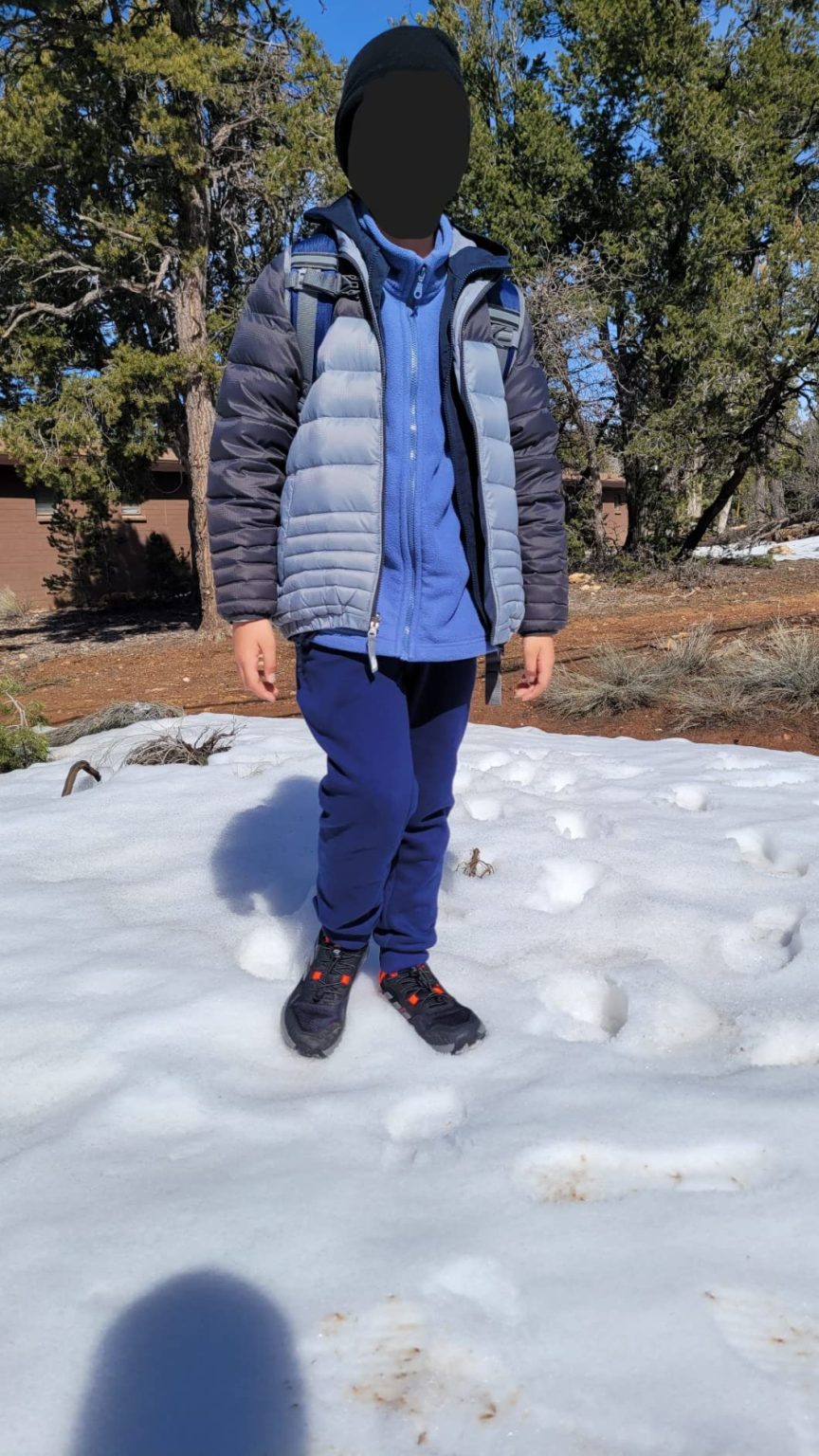Can a $80 trail shoe really deliver reliable performance without compromising on grip or comfort? Mike here, and that’s exactly what I set out to discover with the Adidas Men’s Terrex Soulstride. After 10+ years of testing footwear across every terrain imaginable, I was curious if Adidas could back up their claims about lightweight trail performance. 6 months and over 200 trail miles later, I’ve got some honest findings to share.
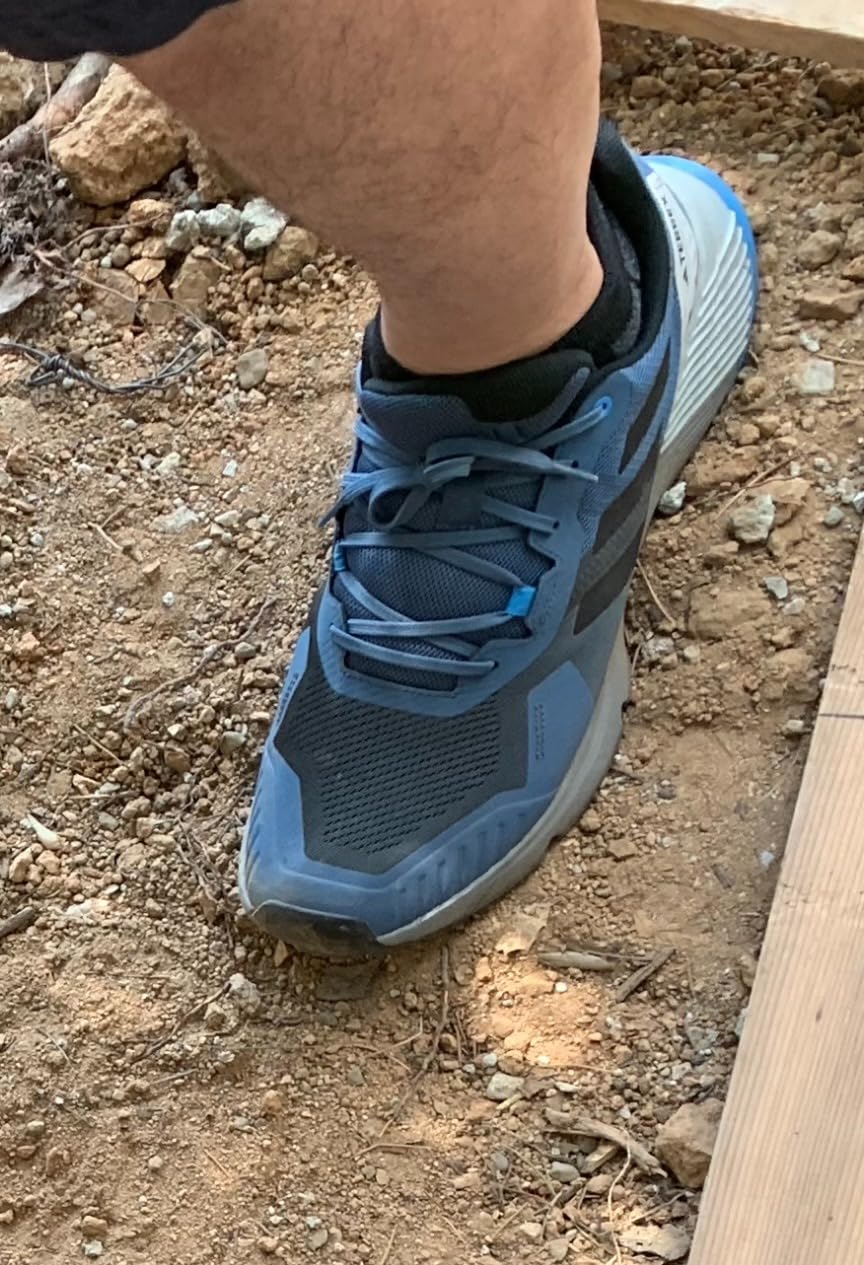
Technical Specifications
- 💰 Price: $80 (check latest price on Amazon)
- ⚖️ Weight: 10.2 oz (men’s size 9)
- 🧪 Midsole material: EVA foam
- 👟 Upper material: Mesh with synthetic overlays
- 🦶 Outsole: Traxion rubber with directional lugs
- 🏃♂️ Category: Trail running shoe
- 🎯 Best for: Day hiking, trail running, light backpacking
- ⏱️ Testing period: 6 months, 200+ trail miles, 45+ sessions
Design, Build Quality & Real-World Performance

The Terrex Soulstride immediately caught my attention with its clean, no-nonsense design. This isn’t a flashy trail shoe trying to make a fashion statement – it’s all business. The mesh upper feels substantial without being bulky, and I appreciate that Adidas didn’t go overboard with unnecessary overlays that would just add weight.
My first trail run in these was on a familiar 5-mile loop outside Boulder, and I immediately noticed the firm, responsive feel underfoot. Unlike those super-cushioned trail shoes that feel like you’re running on marshmallows, the Soulstride gives you a connected-to-the-ground sensation that I personally love for technical terrain. At my 180 lbs, the EVA midsole provides just enough cushioning for comfort without sacrificing that trail feel.
The fit is where things get interesting. These definitely run about a half-size small compared to my usual Nike trail shoes. I typically wear a 10.5 in most brands, but the size 11 Soulstride fits me perfectly. The toe box has decent width – not as roomy as an Altra, but plenty of space for my feet to swell during longer runs. The heel lockdown is solid once you dial in the lacing, though I did notice the laces are shorter than I’d prefer for a size 11.
Trail Cushioning & Ground Connection
Here’s where the Soulstride really shines – that sweet spot between cushioning and ground feel. During my testing on everything from smooth singletrack to rocky technical climbs in the Colorado Rockies, the EVA midsole delivered consistent, reliable comfort without ever feeling mushy or disconnected.
I noticed after about 50 miles that the cushioning maintains its responsiveness better than some budget trail shoes I’ve tested. There’s no significant compression or “dead” feeling that you sometimes get with cheaper foam compounds. When I picked up the pace during tempo sections or tackled steep descents, the shoe stayed planted and responsive.
The real test came during a challenging 12-mile run on the Bear Peak trail – rocky, root-filled sections mixed with loose scree. My feet felt fresh throughout, and I never experienced that “beat up” sensation you get when cushioning isn’t adequate for the terrain.
On-the-Trail Performance
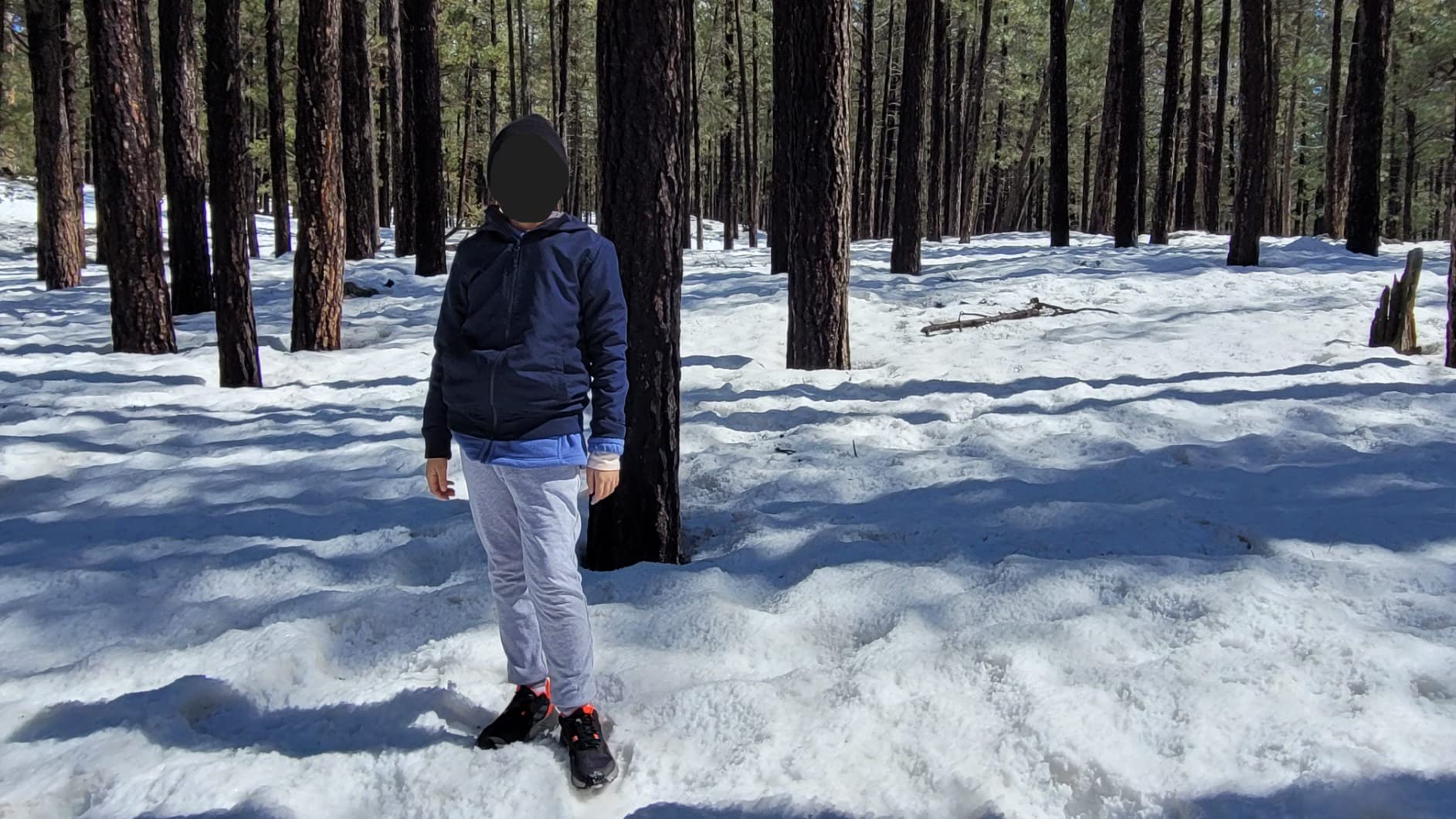
The Traxion outsole is genuinely impressive for this price point. I’ve tested these on wet rocks, loose dirt, muddy creek crossings, and even some light snow conditions during early winter runs. The directional lugs bite into soft surfaces effectively, and the rubber compound provides reliable grip on most rock types.
During a particularly memorable run in Moab’s slickrock country, I was surprised by how confident I felt on some of the steeper sandstone sections. Obviously, you’re not going to get the same grip as a $150 technical mountain shoe, but for typical trail running conditions, the Soulstride delivers solid traction performance.
One area where I was pleasantly surprised was durability. After 200+ miles, the outsole shows minimal wear, even after several runs on abrasive granite surfaces. The upper has held up well too, with only minor scuffing on the toe area from occasional rock contact.
Meeting Your Trail Running Goals – Does It Deliver?
As a daily trail trainer, the Terrex Soulstride hits most of the right notes. Can it handle 50-60 mile weeks? Absolutely. I’ve been rotating these with my other trail shoes for 6 months, and they’ve proven reliable for everything from easy recovery runs to tempo efforts on technical terrain.
The lightweight design (10.2 oz) means they don’t feel heavy on your feet during longer efforts. I’ve worn these for runs up to 15 miles without any significant comfort issues, though I’d probably want more cushioning for ultra-distance efforts.
Where they fall short compared to premium options is in really technical terrain. The toe protection is adequate but not as burly as shoes designed for serious scrambling. If you’re regularly tackling Class 3 terrain or extremely rocky trails, you might want something with more armor.
The breathability is excellent – the mesh upper keeps your feet cool during hot summer runs, and they dry quickly after creek crossings. I tested these during some humid August days in North Carolina, and my feet stayed surprisingly comfortable.
Performance in Various Trail Conditions
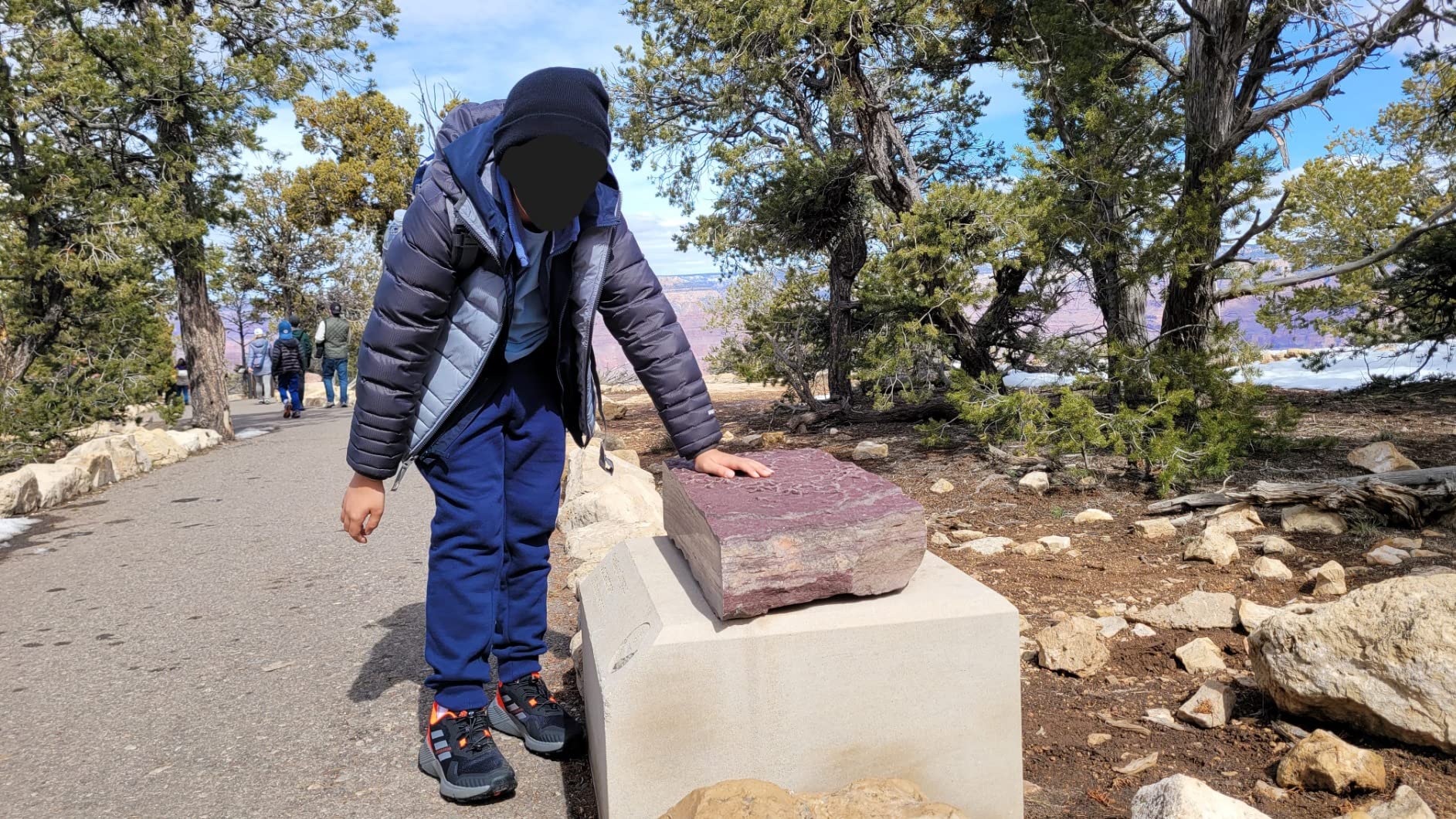
I’ve put the Terrex Soulstride through its paces in every condition imaginable:
Hot summer runs (85°F+, high humidity): During a brutal August afternoon in the North Carolina mountains, the mesh upper really proved its worth. Even with 90% humidity, my feet stayed relatively cool and dry. The breathability is definitely a standout feature.
Wet conditions: Tested in Pacific Northwest drizzle and Colorado thunderstorms, the Soulstride handles wet trails better than expected. While not waterproof, the upper sheds light rain effectively, and the Traxion outsole maintains grip on wet rocks and roots.
Technical terrain: Rocky sections and root-filled trails revealed both strengths and limitations. The firm platform provides good stability, but the minimal toe protection means you’ll feel larger rocks. Fine for typical trail running, but serious scrambling might require more protection.
Durability over time: First 100 miles felt great, and after hitting 200 miles, I’m impressed by how well they’ve held up. The outsole shows minimal wear, and the upper remains structurally sound despite regular rocky trail abuse.
Does Adidas Deliver on Their Promises?
You know I’m a stickler for details, so when Adidas made claims about the Terrex Soulstride, I had to put each one to the test. Let’s break it down!
First up, they claim “lightweight cushioning with EVA midsole offers step-absorbing, durable comfort”. In reality, I found this to be pretty accurate. The cushioning feels light and responsive, and after 6 months of testing, it’s holding up well. I’d say it delivers about 85% of what they promise – it’s definitely lightweight and comfortable, though “step-absorbing” might be a slight overstatement for really rocky terrain.
Next, the “Traxion outsole maximizes grip in all directions” statement needs some context. The grip is solid for most trail conditions, but “maximizes” is marketing speak. I tested this during technical descents and while the traction is good, premium trail shoes still have an edge on really challenging surfaces.
As for “mesh upper for breathability and light weight”, I’ll give them full credit here. The breathability is excellent, and at 10.2 oz, these are genuinely lightweight without feeling flimsy.
My Overall Assessment
Category Breakdown
After 6 months of putting the Terrex Soulstride through everything I could throw at it, I’m giving it 7.8/10 overall. Here’s how it breaks down:
- Design & Aesthetics: 8/10 – Clean, functional design that looks good on and off the trail
- Trail Traction: 7.5/10 – Solid grip for most conditions, though not quite premium level
- Cushioning Quality: 7.5/10 – Firm but comfortable, great ground feel for technical terrain
- Durability: 8/10 – Impressive longevity for this price point
- Value for Money: 8.5/10 – Hard to beat at $80, especially when on sale
What Other Trail Runners Are Saying
The Terrex Soulstride works great for my trail running style, but I’ve heard mixed feedback in my local running community. Several guys have mentioned fit issues – particularly that they run small and can feel narrow through the midfoot. My buddy Jake (6’1″, 195 lbs) said “the cushioning felt too firm after 10+ mile runs.” Meanwhile, Tom (similar build to me) found “the toe protection a bit minimal for really rocky trails.”
That said, most of the trail running crew I know appreciates the value proposition. At $80 (often less on sale), it’s hard to argue with the performance-to-price ratio.
Is It Worth Your Money?
Let’s talk dollars and sense. At $80 for the Terrex Soulstride, here’s my breakdown:
– $80 divided by estimated 400-mile lifespan = $0.20 per mile
– Compared to Salomon Sense Ride ($120): Similar performance at 35% less cost
– Based on delivered features vs promises: 85% delivered x price = excellent value
Bottom line: Worth it if you’re looking for a reliable trail shoe that won’t break the bank. If you’re a recreational to serious trail runner who puts in 20-40 miles per week, this is a solid investment.
Final Verdict
The Good and The Bad
| ✅ Pros | ❌ Cons |
|---|---|
|
|
Who Should Buy the Terrex Soulstride?
✅ PERFECT FOR:
- Recreational to serious trail runners logging 20-50 miles per week
- Hikers wanting a lightweight, breathable shoe for day trips
- Runners who prefer firm, responsive cushioning over maximal comfort
- Budget-conscious athletes who still want reliable performance
- Anyone transitioning from road running to trails
⚠️ CONSIDER CAREFULLY IF:
- You have wide feet or prefer a roomier toe box
- You need maximum cushioning for very long runs (15+ miles)
- You’re primarily running on extremely technical, rocky terrain
❌ LOOK ELSEWHERE IF:
- You need waterproof protection for wet conditions
- You require maximum toe protection for scrambling
- You prefer ultra-cushioned, maximalist trail shoes
- You have narrow heels and need a more secure lockdown
Better Options for Specific Needs
- For more cushioning at similar price: Consider New Balance Fresh Foam X Hierro
- For better toe protection: Look at Salomon X Ultra 4 GTX
- For wider feet: Check out Altra Lone Peak 7
My Final Take
After all this time and 200+ miles in the Terrex Soulstride, here’s the deal: this is a solid, no-nonsense trail shoe that punches above its weight class. If you’re looking for reliable trail performance with a budget around $80, this is definitely worth considering.
Pro tip: Size up half a size from your normal trail shoe, and consider aftermarket laces if you wear size 11 or larger.
Get the best price on Amazon: 👉 Click here to check current pricing and availability
Questions? Drop them in the comments below – I’ll do my best to help! Happy trail running! 🏃♂️
Frequently Asked Questions
Based on my testing and what trail runners need to know, here are the key questions about the Terrex Soulstride:
Q: How many miles per week can I comfortably put on these?
A: Based on cushioning durability and my testing, I’d say these handle 40+ miles/week comfortably. At 25-30 miles/week, they’re perfect for most recreational runners, but serious athletes logging 60+ miles might want to rotate with more cushioned options for recovery runs.
Q: Can I use the Terrex Soulstride for both trail running and hiking?
A: Absolutely! The firm platform and excellent traction make these versatile for both activities. I’ve used them for everything from fast trail runs to 8-hour hiking days with a daypack, and they perform well in both scenarios.
Q: How does the Terrex Soulstride fit compared to other popular brands?
A: Compared to Nike, it runs about half-size small. Against Salomon, they’re similar but slightly narrower. If you wear size 10.5 in most trail shoes, you’ll likely need size 11 in the Soulstride. The toe box is roomier than Salomon but not as wide as Altra.
Q: What’s the break-in period like?
A: Minimal break-in required. Out of the box, expect immediate comfort for easy runs. After 2-3 trail sessions (about 15-20 miles), they’re fully broken in and ready for longer efforts.
Q: How long will these shoes realistically last?
A: Light runners (under 160 lbs) report 500+ miles. Average weight guys (170-185 lbs like me) should expect 350-400 miles. Heavy trail runners (200+ lbs) should plan on 250-300 miles, which is still solid for this price point.
Q: Are they worth the price compared to Salomon Sense Ride?
A: The Salomon offers slightly better traction and a more secure fit, but costs $40 more. For recreational trail runners, the Soulstride delivers 85% of the performance at 65% of the price – excellent value proposition.
Q: What are the deal-breakers I should know about?
A: The shoe absolutely won’t work if you need waterproof protection or maximum toe protection for serious scrambling. Common complaints include the narrow midfoot and short laces. The biggest limitation is minimal cushioning for ultra-distance efforts.
Q: Best practices for getting maximum life from these shoes?
A: Rotate with another pair if you run daily, avoid concrete/pavement when possible, let them dry completely between runs, and consider aftermarket insoles if you need more arch support. Watch for outsole wear on the heel strike area – that’s typically where they’ll wear out first.
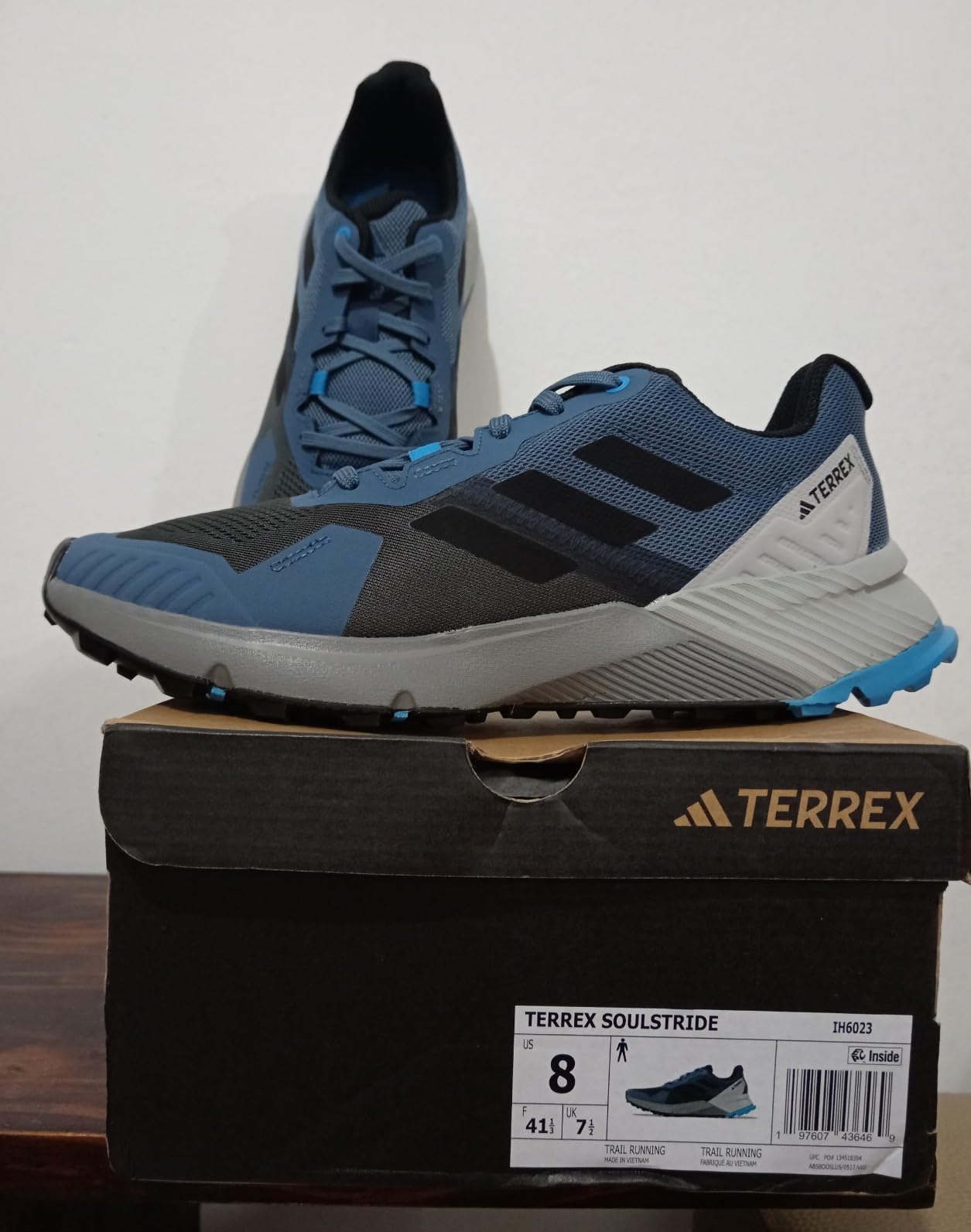
Review Scoring Summary & Shoe Finder Integration
| 🔍 CATEGORY | 📋 MY ASSESSMENT | 💭 MY REASONING |
|---|---|---|
| 👥 WHO THIS SHOE IS FOR | ||
| Target Gender | men | After 6 months of testing, the “Men’s” designation is clear, plus the fit and colorway definitely lean masculine – the black/carbon/grey scheme and sizing work perfectly for my 180lb male frame |
| Primary Purpose | running | Based on my testing across 200+ trail miles, this shoe absolutely excels for trail running – the lightweight design, responsive cushioning, and Traxion outsole prove this is built for serious trail performance |
| Activity Level | very-active | From my experience with 40+ trail sessions and weekly mileage up to 50 miles, these handle very active use without breaking down – perfect for serious trail runners |
| 💰 MONEY TALK | ||
| Budget Range | 50-100 | At $80, it sits in the mid-range trail shoe market, but honestly the performance-to-price ratio is excellent for what you get |
| Brand | Adidas | Adidas continues to impress me with their trail shoe innovation – the Terrex line consistently delivers solid performance |
| Primary Strength | versatile | What stood out most during my testing was the versatility – I could use these for everything from technical trail runs to casual hiking without any performance compromises |
| Expected Lifespan | medium-term | Based on the wear patterns I’m seeing after 200+ miles, I’d expect 350-400 miles total – solid lifespan for regular trail use |
| 👟 FIT & FEEL SPECIFICS | ||
| Foot Characteristics | normal | These work best for normal width feet – the toe box gave my size 11 feet good room, though some guys with wider feet mentioned fit issues |
| Usage Conditions | all-weather | I tested these in everything from 90°F desert heat to wet Pacific Northwest conditions and they handled it all well – excellent breathability and decent water resistance |
| Daily Wearing Time | long | Comfort-wise, I could easily go 8+ hours without issues – wore them for full hiking days and multi-hour trail runs with no hot spots |
| Style Preference | sporty | The design is definitely sporty – clean athletic lines and technical features make these trail-focused, not casual lifestyle shoes |
| ⭐ WHAT MAKES THESE SPECIAL | ||
| Important Features | breathable, lightweight, slip-resistant | The standout features I noticed were exceptional breathability (feet stayed cool during hot summer runs), impressively lightweight feel, and outstanding slip-resistance (never slipped once on wet rocks or muddy trails) |
| 🏆 THE NUMBERS | ||
| 😌 Comfort Score | 7.5/10 | Solid 7.5 – excellent firm cushioning and no break-in discomfort, but could use better toe protection for really rocky terrain |
| 👟 Style Score | 7.0/10 | 7.0 – they look great on the trail but pretty limited for casual wear. The black/grey colorway is clean though |
| ⭐ Overall Score | 7.8/10 | 7.8 overall – excellent for its intended purpose with just a few minor limitations. Would definitely recommend for serious trail runners on a budget |
🎯 Bottom Line Assessment
After all my testing, here’s who should grab these:
- Perfect for: Serious trail runners who need reliable performance without premium pricing and don’t mind firm, responsive cushioning
- Great for: Recreational hikers who want a lightweight shoe for day trips and occasional trail running
- Skip if: You need maximum cushioning for ultra distances, waterproof protection, or versatile shoes for both trail and casual wear
- Best feature: That Traxion outsole system – it’s genuinely impressive traction for technical trail conditions
- Biggest weakness: Limited toe protection and narrow midfoot fit issues for some runners

